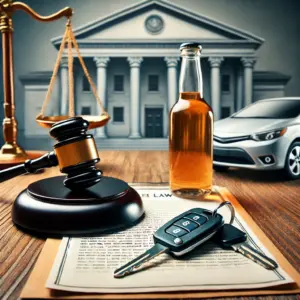Alcohol-related cases are unique in the courtroom because they involve not just law but perception, emotion, and human judgment. When a case involves impaired driving or public intoxication, judges and juries bring their own experiences and biases into the evaluation process. This makes the role of legal representation, particularly a skilled DUI attorney, critical in shaping how evidence is presented and perceived. Understanding the psychology behind judicial and jury decision-making can help defendants and their attorneys anticipate challenges and craft more effective strategies.
The Influence of Personal Experience
Personal experiences with alcohol can powerfully shape how judges and juries view a DUI case. A judge who has handled cases involving accidents caused by intoxication may bring those memories into their interpretation of the current matter. Jurors, too, may recall their own experiences—or those of friends and family—that trigger emotional reactions. These personal associations can subtly influence how they evaluate evidence, whether it’s a breath test or witness testimony. For defense attorneys, recognizing this dynamic is crucial to presenting arguments that resonate with the audience while remaining firmly grounded in fact.
Emotional Responses and Sympathy
Cases involving alcohol often stir powerful emotions. Jurors may feel sympathy for victims of drunk driving or compassion for a defendant struggling with addiction. In some situations, these emotions can outweigh logic, especially when the case involves tragedy or high drama. Even judges, despite their training in impartiality, are not entirely immune to bias. A skilled DUI attorney must navigate these emotional undercurrents, striking a balance between compassion and factual arguments to ensure the outcome rests on the law rather than sentiment.
Cognitive Biases in Decision-Making
Cognitive biases play a critical role in courtroom judgments. Confirmation bias, for example, can lead jurors to favor evidence that confirms their pre-existing beliefs about alcohol-related offenses. Anchoring bias may cause a judge to give disproportionate weight to an initial piece of evidence, like a high blood-alcohol reading. Understanding these biases allows an attorney to structure evidence presentation in ways that minimize negative impact. By anticipating how these biases operate, attorneys can influence perceptions without appearing manipulative.
The Role of Social Influence
Judges and juries are influenced by more than just the evidence presented in court. Broader social attitudes toward alcohol and community expectations often shape how cases are viewed. Within a jury, group discussions, and sometimes the influence of dominant voices, can sway the final decision. Judges, while making independent rulings, also consider precedent and remain aware of public sentiment. An experienced DUI attorney takes these factors into account, shaping arguments in ways that connect with community values, for example, by emphasizing rehabilitation as an alternative to strict punishment, thereby strengthening the defense.
Communication and Presentation Matters
The way evidence is presented significantly affects outcomes in alcohol-related cases. Clear, concise explanations, visual aids, and expert testimony can make complex issues understandable. Miscommunication, even unintentionally, can reinforce negative assumptions about a defendant. An attorney works to ensure that technical details, such as blood-alcohol concentration calculations or field sobriety test procedures, are explained in a way that reduces confusion and misinterpretation. Effective communication can shift focus from judgment to understanding.
Mitigating Bias Through Strategy
Identifying bias is only the first step; skilled attorneys also work to minimize its impact. They may emphasize a defendant’s responsible conduct in other areas of life or provide context that helps explain their actions, softening negative assumptions. Expert witnesses can also play a crucial role, offering objective, scientific testimony that balances emotionally driven arguments. By understanding how judges and juries think, an attorney can tailor their approach to ensure the case is presented as fairly as possible.
Conclusion
Alcohol-related cases go beyond legal arguments; they are shaped by human perception and emotion. Judges and juries inevitably bring their own experiences, biases, and social perspectives into the courtroom, which can strongly influence the outcome. A skilled DUI attorney understands these dynamics and works to present evidence in a way that cuts through emotional reactions and unconscious bias. Recognizing the intersection of psychology and law is crucial for anyone involved in these cases, as it can often determine whether the outcome is a conviction or a fair resolution.
